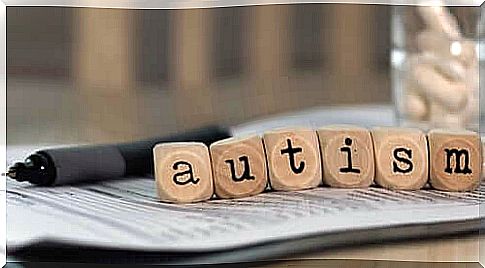Autism In Adults: Psychological And Social Challenges To Achieve Well-being

When we talk about Autism Spectrum Disorder (ASD), it’s pretty common to think about the challenges and needs of little ones. We know that early detection improves the development and quality of life of this population group. But what does autism look like in adults? What kind of support and what strategies does a man or woman with this neurobiological condition need?
Since diagnostic criteria improved in the 1990s, it is not only possible to identify children with ASD in schools. From that decade to today, many adults have been able to find an explanation for their behavior, an answer to their peculiarities and the origin of their personal limits.
We cannot forget this detail: we are faced with a developmental disorder that covers a wide range of characteristics and needs. There are people with Rett syndrome and Asperger’s syndrome. There are highly functional autistic adults and others who are more dependent, with severe communication limitations, social interaction problems and more pronounced repetitive behaviors.
In any case, psychological attention, social assistance and the right to inclusion are axes that must never be neglected. Autism in adults is a reality that must be made visible to provide them with the answers they need. Only then will they achieve that wholeness and well-being that every person deserves.

Autism in adults: what are their needs?
It is important to know that adulthood is an area of unsupervised research when it comes to better understanding autism spectrum disorders (ASD). Fortunately, over the past few years there has been tremendous interest and now we have more data, more resources and more knowledge.
All this is linked to this great objective: to offer an individualized and expert response to each person according to their needs. However, in clinical practice we find a problem. There are highly functional adults with autism who still don’t know they have this condition.
They are independent people, with their professional responsibilities and vital projects who often perceive that something is wrong with them. Usually, problems with social interaction, hypersensitivity to stimuli and anxiety seriously limit their quality of life. So, we need to know that two people with ASD do not have the same characteristics.
However, and beyond the peculiarities of each, autism in adults interferes with the daily reality of this large group. Detection, early and personalized therapy guarantees changes, improvements and well-being.
So let’s see what challenges they face and what kind of assistance they need.
Consult psychologists who are experts in ASD
If you have an adult parent with autism or if you suspect that you yourself may be in this spectrum, it is best to consult a professional with expertise in this area. What can a qualified psychologist give us?
- He will perform a comprehensive assessment to identify the strengths and, most importantly, the cognitive, behavioral and emotional needs of adults with autism.
- Interviews will be conducted with the patient’s social environment.
- Additionally, medical tests will be evaluated to rule out other conditions.

Autism in adults and types of therapy
Psychological intervention for adults with autism will always depend on their particular needs. Thus, and on average, the following aspects are generally worked on:
- Communication and social skills training.
- Integration of habits into daily life.
- Modification of certain behaviors to promote their integration, their well-being and their social behavior.
- Practice functional routines so that the autistic adult has an adequate sense of security and autonomy.
- Promote integration into the workplace.
- It is also essential to address dimensions such as anxiety or mood disorders, such as depression. We cannot forget that these types of realities involve dealing with multiple emotional challenges. Therefore, cognitive behavioral therapy is very appropriate in these cases.
- On the other hand, individual psychotherapy is also essential. A man or woman with ASD needs to improve many of their relationships, whether it’s emotional, family, or work.
- We cannot forget that there are people with autism who have more severe cognitive deficits. Behavioral problems may appear, where psychological support is essential.
Support for the family and the environment
Last but not least, talking about autism in adults implies in turn taking into account the family environment. Fathers, mothers, couples, children… Knowing how to act or simply understanding what autism spectrum disorder is is, in turn, a decisive step in making life easier for the patient.
In this aspect, the psychologists constitute this help and this daily support to which to ask and also with which to express his fears, his doubts, his anxiety, his stress… In essence, the personal reality of this large group of our society is complex and unique. But there are resources, there are strategies and expert personnel who can help us and gradually promote a better quality of life.










